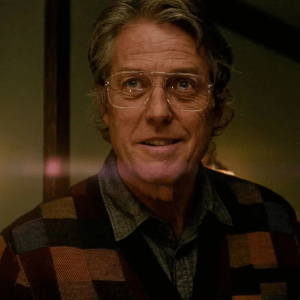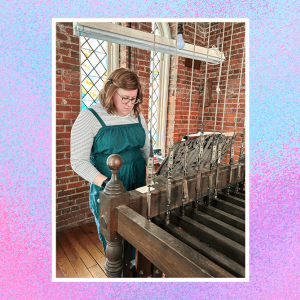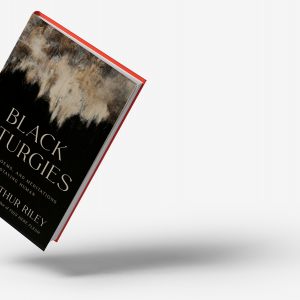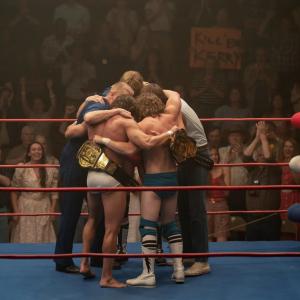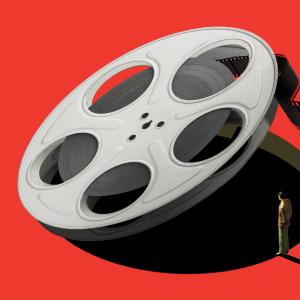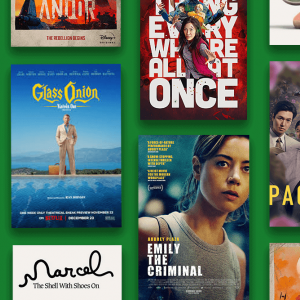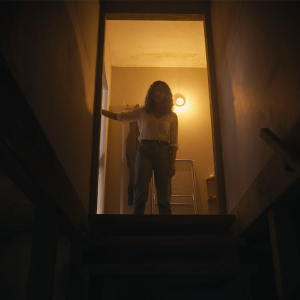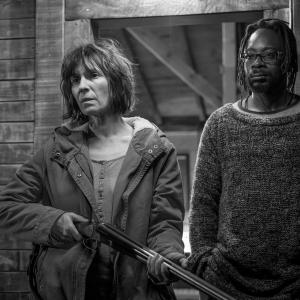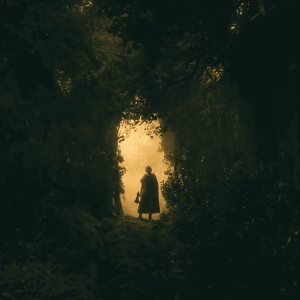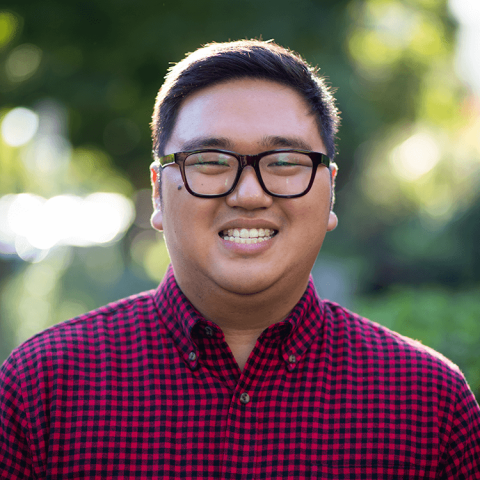
Zachary Lee (he/him) is from Chicago’s North Side (he feels the need to clarify he’s actually from the city). In 2020, he graduated from Cornell University where he studied English, specifically focusing on creative writing and science fiction, and minored in Spanish. His senior thesis focused on how Asian American science fiction is inherently a genre of reconciliation, one where authors can prototype better worlds that are not solely rooted or constrained by present hardships.
An avid writer, Zachary served as editor-in-chief, editor, and writer for Claritas, Cornell’s journal of Christian thought, and contributed to his school’s newspaper, The Cornell Daily Sun. While he studied abroad at Oxford, he co-founded Through a Glass Darkly, Oxford's very first student journal in Christian thought and art. He loves to write about the intersection of faith and media, slyly finding ways to use writing projects as an excuse to stay up to date on pop culture by writing for sites like Think Christian. For two years after graduation, Zachary served as the content and communications fellow at Chesterton House, a Christian study center which, like the Sojourners Fellowship Program, had an emphasis on intentional residential Christian community.
Zachary credits his participation in Rooted & Radical Youth Poetry Festival (he knew it then as Louder than a Bomb), Chicago’s annual slam poetry festival, as first sparking his interest in justice work, specifically the way authors use writing to imagine better worlds while decrying present injustices. He’s excited to continue to press further into the way words can be tools for justice as online editorial assistant at Sojourners.
With his spare time, Zachary happily evangelizes about and logs films on Letterboxd, collects and poses action figures, and often writes down the funny and/or profound quotations the people around him say (that they’ve probably forgotten about). While hope characterizes much of his writing and vocational interests, the one place where he’s given up hope is catching up on his ever-expanding book list (he’s currently on book nine of 92+). That doesn’t mean he won’t try, though.
Posts By This Author
In ‘Heretic,’ Hugh Grant Is a Terrifying Theo Bro
Heretic is a litany of theological inquiries wrapped in the skin of a horror movie. Like Legion, the frights of directors Scott Beck and Bryan Woods’ film are many, but its biggest scare isn’t demonic or paranormal or gory: It’s the unique terror of being caught in a theological conversation with a self-righteous man.
Meet the Queer Methodist Who Played ‘HOT TO GO!’ on Church Bells
On June 1, for the North Carolina residents of downtown Durham, the morning’s new mercies came in the form of Chappell Roan’s song “HOT TO GO!” being played from the century-old bell tower of Duke Memorial United Methodist Church.
What 500 High School Girls Can Teach Us About Political Dialogue
Heading into an election year, directors Amanda McBaine and Jesse Moss knew the importance of chronicling how young people, especially young women, are working through political disillusionment. The directors follow up their 2020 release of Boys State with a “sibling” documentary in 2024’s Girls State, which follows the week-long experience of 500 high school girls who gather for a mock-government camp in Missouri.
Most Americans Support Religion in Public Life, but Avoid Disagreements
A new report from Pew Research Center found that while most Americans think religion has a positive influence on American life, few are willing to have discussions about religious differences.
The report revealed that a majority of American adults (80 percent) would say that “religion’s role in American life is shrinking,” which Pew reported as the highest in the survey’s history. Majorities in each religious group and the religiously unaffiliated say religion is losing influence.
A Prayer Book That I Could Not Put Down
COLE ARTHUR RILEY never wanted to write a prayer book. But when she went looking for liturgical practices that centered Black emotion, Black literature, and Black bodies, she couldn’t find much. Now, for nearly four years, Riley has been curating the Instagram page @blackliturgies, which integrates the truths of dignity, lament, rage, justice, and rest into written prayers. Her new book, Black Liturgies: Prayers, Poems, and Meditations for Staying Human, expands on that work. Typically, prayer books are not page-turners, but once I started reading this one, I couldn’t put it down.
By interpolating corporeal language into her prayers, Riley offers a refreshingly accessible entry into contemplative literature. She has a gentle way of encouraging readers to engage with her prayers. “Turn them over in your hand. Take a deep breath,” she writes. “There is no demand I will make of you, apart from staying near to yourself, your body, your own soul, and the stories that dwell there.”
‘The Iron Claw’ Portrays a Tragedy of Faith
The Von Erichs believed in the salvific power of both faith and wrestling.
‘Priscilla’ Rebukes Our Obsession with Charismatic Leaders
In Priscilla, which is based off Priscilla Presley’s 1985 memoir Elvis and Me, we don’t primarily see Elvis through the eyes of his manager or adoring fans, instead, we see him through the eyes of the only woman he ever married, who he began courting when he was 24 and she was 14.
‘Killers of the Flower Moon’ Shows the Violence of Indifference
The real mystery of Killers of the Flower Moon is not who murdered so many Osage people, it’s how these murders can go on for so long — how the loss of life can be dismissed with such apathy.
AI Is Made In Our Image. Here's Why That's a Problem
For Christians, AI poses its own set of questions: Is it bad to use AI to write a prayer or outline a sermon? Is AI able to provide counseling and spiritual direction for congregants seeking discernment and spiritual care? Can AI achieve personhood, and if so, what should our commitments to caring for them be? I found some guiding answers in Noreen L. Herzfeld’s book The Artifice of Intelligence: Divine and Human Relationship in a Robotic Age.
‘Past Lives’: Love at the Crossroads of Fate and Free Will
Past Lives is a poignant exploration of both the burden and grace available to us as creatures of free will who are bound to the finality of our choices.
Fatal Distraction: 3 Films Warn Us of the Seduction of Spectacle
EVERYTHING EVERYWHERE ALL AT ONCE, the absurdist sci-fi cinematic romp through the multiverse by a Chinese American laundromat owner in the L.A. mega sprawl, garnered seven Oscars this year, including for Best Picture. I’ve seen Everything Everywhere eight times. I’ve introduced it to friends. I did not think my favorite film could do anything wrong. What could be better than to be wrapped up in the spectacle created by directors Daniel Kwan and Daniel Scheinert and their amazing cast?
The directors’ over-the-top approach embraces the “too muchness” of its title. Laundromat owner Evelyn Wang (Michelle Yeoh) lives with her husband, daughter, and recently-arrived-from-China elderly father in a small apartment above the family business. Their dining room is cluttered with the American dream — workout equipment, inspirational business books, beeping electronic kitchen gadgets, a TV droning in the background, and a live security feed to the washers and dryers downstairs. “The Daniels,” as the directors are known, wrote in the original script, “It is a still life of chaos.”
Evelyn and her family are slowly spinning apart, and now the IRS is auditing the Wangs and their business. The forces of chaos are spreading beyond their little apartment. Later, while Evelyn is explaining to an IRS auditor (Jamie Lee Curtis) why her receipts are not in order, she gets a message from her husband (well, an alternative version of him) that she may be in grave danger and that she may hold the key to saving not only her own world but also the worlds in multiple universes and parallel time frames.
Despite its zany premise and on-screen absurdities (from anthropomorphic racoons and talking rocks to people with hot dogs for hands), Everything Everywhere never lets the spectacle eclipse the emotional story at its center: Evelyn is learning to find contentment in her own universe with her real family, even if she has the power to be elsewhere all at once.
The Temptation to Cult-ify Too Much
WHAT DO CELEBRITY megachurches, a cappella groups, nonprofits, and Trader Joe’s have in common? According to author Amanda Montell and comedian Isabela (Isa) Medina-Maté, they’re all cults. In their hilariously informative podcast, Sounds Like A Cult, launched in 2021, these are just a few of the groups they eye with suspicion. Across episodes, the duo focuses on a group, institution, or brand with a fanatical following and ask, “This group sounds like a cult, but is it really?”
Whether they are calling out the hypocrisy of Starbucks’ refusal to let their workers unionize or critiquing the ways Taylor Swift weaponizes her loyal fan base to dismantle outlets that might portray her negatively, no brand, organization, or person is safe. They often have guests who have escaped (or sometimes still are in) said “cults,” and at the end of each episode, Medina-Maté and Montell share whether that week’s subject fits under one of three categories: a “Live Your Life” cult, a “Watch Your Back” cult, or a “Get the [Expletive] Out” cult. Listening to them is akin to eavesdropping on a conversation between friends, and the tone can switch from serious to breezy in the same breath. “All billionaires are cult leaders, period,” Montell says in an episode about Starbucks. In an episode about church camps, she notes that camps are great at “weaponizing endorphins and calling it the Holy Spirit.” The hosts are alternately analytical, easygoing, and earnest, but they never belittle their subjects for the sake of laughs.
Is Blowing Up an Oil Pipeline an Act of Christian Nonviolence?
Can blowing up a pipeline be a form of nonviolent protest? Director Daniel Goldhaber’s new film, How to Blow Up a Pipeline, makes a strong case in the affirmative — even if the activists at its center could care less about being called “terrorists” by the American empire.
8 Christian Women Shaping the Church in 2023
For the past seven years, Sojourners has celebrated Women’s History Month by highlighting women whose work who has inspired us with their visions for a more just world — and church. The women in this year’s list include authors and reporters; activists and advocates; professors and pastors, but they’re all united by their commitment to tell radical, inclusive stories and their belief that shaping the church and world starts in one’s own community.
How Three Recent Films Inadvertently Point Us to Jesus' Table
IT WOULD HAVE been tough to be both a disciple of Jesus and a foodie. Don’t get me wrong, Jesus certainly valued food — his earthly ministry was filled with meals: The gospel of Matthew describes Jesus as one who “came eating and drinking” (11:19). As Robert J. Karris wrote in Eating Your Way Through Luke’s Gospel, Jesus was “either going to a meal, at a meal, or coming from a meal.” But what the Chosen One had in meal frequency, he lacked in meal diversity.
A “foodie” is someone who eats food as a hobby — a passion, even. The more exotic the better. If you pull up to your local boba shop, why settle for regular milk tea when you can order one infused with butterfly pea flower that turns it bright blue?
However, for Jesus’ meals, at least the ones recorded in scripture, the fish is served broiled (Luke 24:42), not creatively deconstructed. And if you’re rolling with Jesus, you better like eating bread.
Though his plate may have lacked the splendor of the centurions’ or high priests’ spreads, Jesus viewed the table as a radical place of inclusion. For many powerful religious leaders of the time, dining was yet another way to shun the outcasts. In contrast, Jesus intentionally invited those very same “unclean” people to dine with him, breaking bread (because of course it was bread) with tax collectors, sinners, and prostitutes.
In the past year, several films have articulated a hunger for the type of table Jesus championed. Flux Gourmet, Triangle of Sadness, and The Menu critique class inequality through stories revolving around fine dining. In each movie, wealthy people have rich flavors but a dearth of meaningful relationships. The exclusivity of the table seems more important than the actual food served on the plates. Jesus’ table, on the other hand, lacked variety but overflowed in inclusivity — a true palate cleanser to meals that symbolized selfish consumption.
Sojourners’ 2022 Film and TV Roundup to Inspire Faith and Justice
The list below reflects my own preference for films and shows that help me leverage my own viewership to sustain a lifestyle of equity and inclusion. I’ve included 10 films and shows that gave the spotlight to communities, issues, and stories that we usually don’t see — and how richer the world is because of them.
10 Films To Experience the Holy Disruption of Horror
I’ve watched the recent horror films below with one (sometimes both) eye(s) closed, but also with a posture of curiosity and hope: What might my disturbed feelings reveal? May watching these films lead to, as author Brandon Grafius writes, “an openness to what the experience of horror might be able to teach us.”
Why Watching ‘Elvis’ Made Me Think of Megachurch Pastors
Above all else, Luhrmann displays Elvis as a man-turned-god who was exhausted trying to make peace with his paradoxes.
In ‘Fear,’ the Hosts — Not the Refugees — Are the Real Threat
The Bulgarian town where director Ivaylo Hristov’s latest film takes place is never named, but the movie’s title offers a suitable stand-in: Fear. This coastal village on Turkey’s border reeks of terror, but not the kind one might expect.
The Truth Will Set You Free. Are We Ready for That?
WHEN I FIRST read Gwendolyn Brooks’ poem “truth” early last year, I did a double take to make sure it wasn’t written in 2021. The 1987 poem personifies its titular subject as a living being that can knock its “firm knuckles / Hard on the door,” whose arrival brings an equal mix of anticipation and apprehension. Brooks describes multiple responses one can have to the arrival of truth. For those who have made peace with lies, the truth can be threatening: “Shall we not dread him, / Shall we not fear him / After so lengthy a / Session with shade?” Even for those who have longed for truth’s arrival, blissful or willful ignorance seems to be a better alternative than the terror of having to engage truth head on: “Shall we not shudder?— / Shall we not flee / Into the shelter, the dear thick shelter / Of the familiar / Propitious haze?” Regardless, Brooks makes one thing clear: The question is not a matter of if truth will come, but when. The most important question of our lives then becomes, how are we to greet it?
In the poem, Brooks doesn’t name the truth that haunts her—although since she first published it in 1949, as the stage for the civil rights movement was being set, one possibility might be the systemic mistreatment of Black people and white people’s willful obliviousness to it. I found the poem to be a peculiar comfort in this time as we try to adjust to an ever-shifting landscape of new realities and reckon with truths about ourselves we might otherwise prefer remain hidden.
Similarly, several films offer insight into how people receive truth’s advent.
